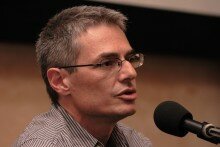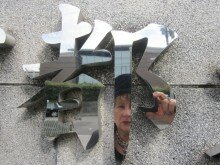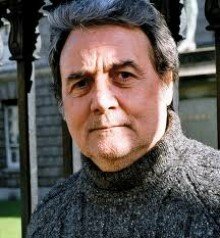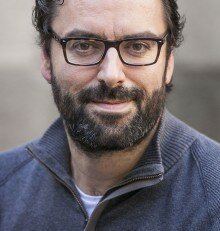Welcome to British poetry - November 2005
As I write this introduction to the launch issue of the UK pages on Poetry International Web, the echoes of National Poetry Day are still strong in the consciousness. The popularity of this nationwide celebration is a sign of the vivacity of poetry in the UK today, with events right up and down the country that embrace the various voices from different areas, different countries, different schools of thought about what poetry is. This is, of course, healthy for contemporary UK poetry, and these pages will best serve their readers, and the poets that may appear on them, by embracing that diversity.
It’s a lot of diversity – ‘UK poetry’ has to embrace the range of practices and provenances that make up that term if we are to do justice to it. This means that we intend to present work from the ‘mainstream’ directly alongside work from experimental poets and those from the performance scene, and to ensure that at least two of the countries that make up the UK are represented each issue. This gives us a wide palette of poetries to choose from. Within England alone, even a selection of important poets as diverse as Charles Tomlinson, U A Fanthorpe, Moniza Alvi and Simon Armitage cannot do justice to the poetry being created in the performance field by poets like Patience Agbabi or John Hegley, or to the parallel tradition of avant-garde writing for which J H Prynne is currently shorthand; once the whole of the UK is involved, Scottish poets such as Edwin Morgan, Kathleen Jamie and Carol Ann Duffy must influence our choices, as must Tom Paulin, Ciaran Carson, Medbh McGuckian and Paul Muldoon from Northern Ireland, and, from Wales, Dannie Abse, Gillian Clarke and Gwyneth Lewis. (This is a tiny sample of the poets who could have been listed in this paragraph; with this in mind, it is surely a wise decision to keep our focus on contemporary poetry, rather than opening these pages to the long history of poetry in English – this can, after all, be found in many other places on the internet.)
How can one editor bring the range of knowledge needed to do justice to this? Our solution to that becomes, we hope, a strength. We have built a team of guest editors with expertise in each of these areas, including Anne Born, Sinead Morrissey, Roddy Lumsden, WN Herbert and Melanie Abrahams, who will each select poets for future issues. This issue, we have two poets as editors – Peter Philpott, editor of Great Works, and Robert Minhinnick, editor of Poetry Wales – who introduce us to this issue’s featured poets, Lee Harwood, Denise Riley, Menna Elfyn and Paul Henry.
It would be misrepresenting the situation to pretend that all these voices exist in harmony, but each poet takes something different from each conflict, each reaction broadening the meaning of ‘UK poetry’, so these pages best represent the sheer range of that term by attempting to show the poets that will appear here without taking the side of anything but quality.







